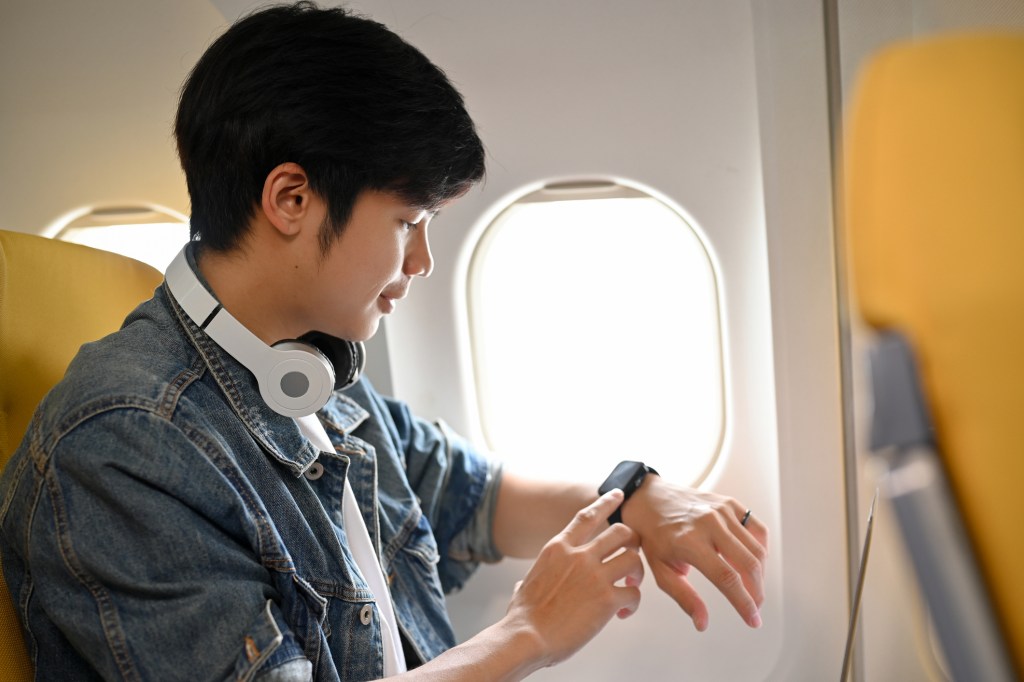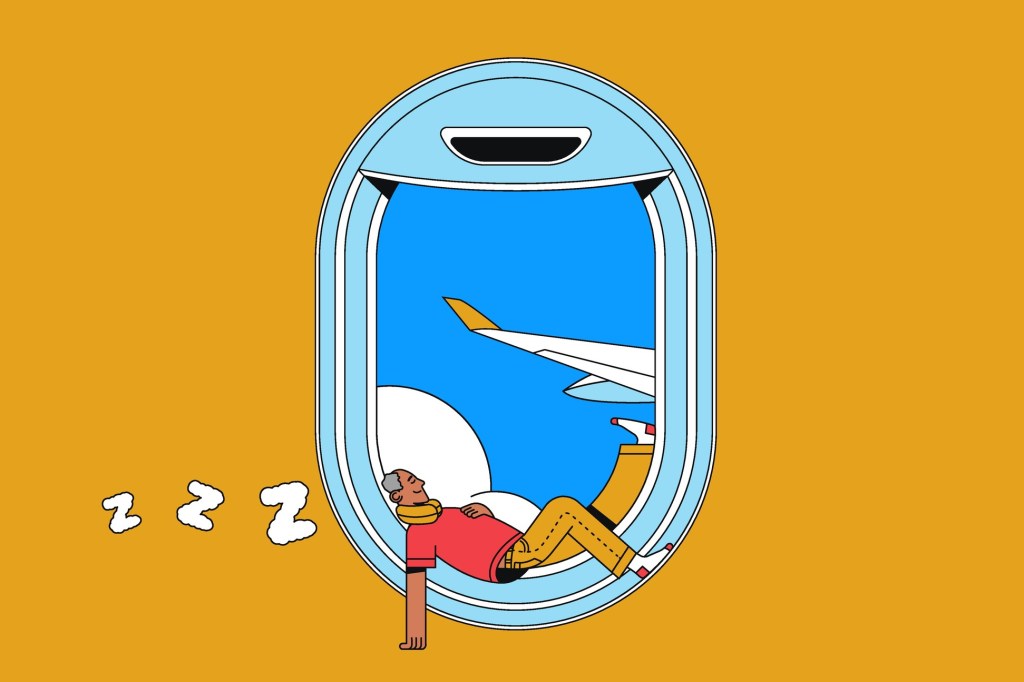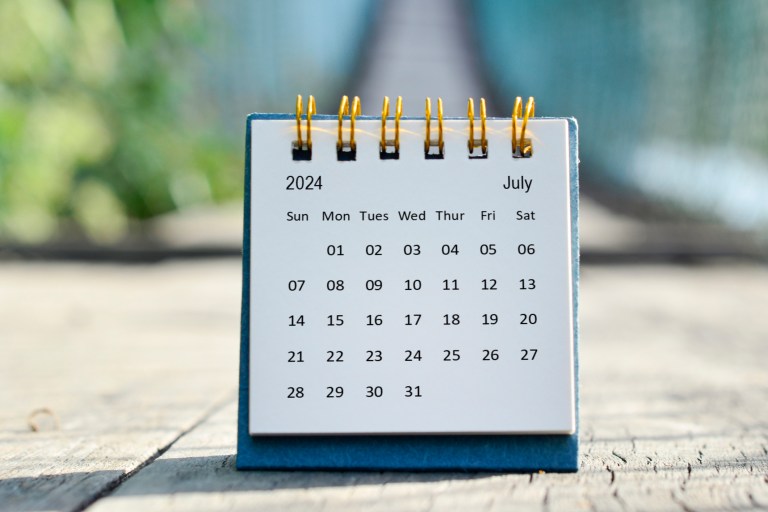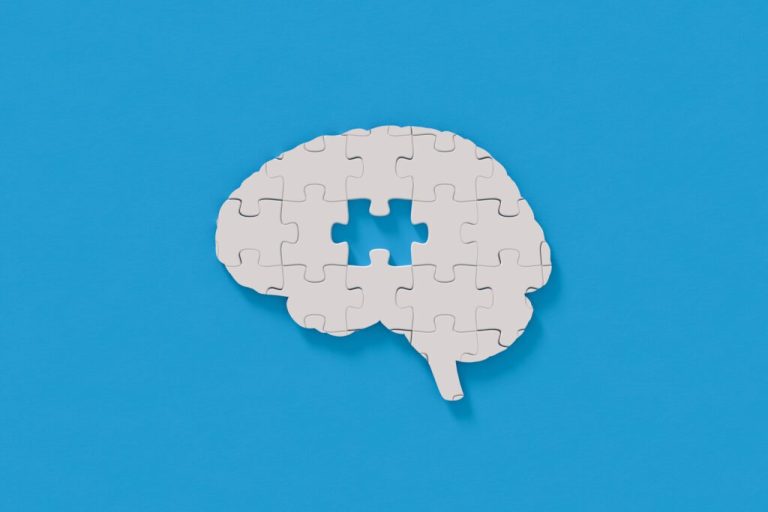Cross-country and international vacations are exciting opportunities for adventure — until you spend your first couple days exhausted, stumbling through the streets bleary-eyed in an attempt to track down a lifesaving cup of coffee. OK, maybe jet lag isn’t always that dramatic, but lying wide awake until 3 a.m. can put a damper on an otherwise fun-filled trip. So with the holidays right around the corner, we rounded up some essential tips for handling a time change, whether you’re traveling to the opposite U.S. coast or across the pond (and beyond) this festive season.
But first, here’s a quick breakdown of this struggle: Technically a sleep disorder, jet lag occurs when our bodies’ circadian rhythm, or internal 24-hour clock, isn’t aligned with the time zone we’re in. Our circadian rhythm typically syncs with our usual time zone to help tell us when to wake up and go to bed. And when we suddenly switch it up, our bodies need time to adjust.
Jet lag can be intensified if you pass through multiple time zones, and even worse for most eastbound flights, during which you technically “lose” time. The Mayo Clinic estimates that you need about a day to recover per time zone crossed — but hopefully by following the advice below, you’ll be able to minimize the time you spend feeling out of sorts.
Prepare Properly
Did you know you can actually start prepping your body to conquer jet lag before you even leave the house? As mentioned, it’s all about aligning your circadian rhythm with your destination’s time zone. The CDC recommends heading to bed an hour or two later than normal several days before you travel if you’re going west, or earlier if you’re headed east.
As an alternative, try adjusting your sleep schedule 15 minutes every day in the same direction (either forward or backward, depending on your destination) during the weeks before your trip, sleep scientist Rebecca Robbins suggested to the New York Post. “Then, once you board the plane, change your phone or wristwatch to your destination time zone and start to live, eat, and sleep on this new time,” she said.

Take Care of Yourself During Travel
It may come as no surprise that treating your body well can help alleviate jet lag symptoms, but it’s worth mentioning, since it may not be top of mind when you’re battling security lines or bingeing a show during a flight. While your circadian rhythm plays a major role here, you may also be feeling tired and icky due to dehydration, unusual mealtimes, and staying seated on a long plane ride, all of which can only add to feelings of discomfort.
So make hydration a priority on the plane to help combat the low humidity levels in the cabin. And tempting as it may be, try to avoid alcohol — it’ll only dehydrate you further and could reduce the high-quality deep sleep you’re able to get. Take naps in the air if you can, avoid foods that may disrupt your digestion, and use the aisle to stretch and walk when possible.
It may also help to start syncing your mealtimes to your new schedule, which you’ll want to do anyway once you land. According to research from The American Institute of Physics, eating a large breakfast in the early morning of your destination’s time zone may help combat jet lag. However, “constantly shifting meal schedules or having a meal at night is discouraged, as it can lead to misalignment between internal clocks,” author Yitong Huang said in a press release.
Light Can Be a Lifesaver

Remember that circadian rhythm we mentioned? It’s connected to a group of cells in your brain called the suprachiasmatic nucleus, which use light to help manage the activity in your body. When you see light, those cells direct your body to stop producing melatonin, the hormone that helps you feel sleepy at night.
Simply put, using light strategically can help you adjust to your new time zone more quickly. For those traveling west, expose yourself to sunlight in the late afternoon if possible, and try to stay awake until your destination’s bedtime, even if that means consuming a little caffeine or taking a short nap.
If you’re traveling east, you’ll want to get a good dose of sunlight first thing in the morning — but at night, you may actually need help getting to sleep, which is where melatonin comes in. In this case, the CDC recommends taking the supplement 90 minutes before you go to bed, but always talk to your doctor before introducing anything new to your routine.
The exception to these guidelines is if you’re crossing more than eight time zones in either direction. To avoid light exposure that could delay your acclimation, stay out of the sun (or wear dark sunglasses) in the morning if you’re going east, and do the same in the late afternoon if you’re traveling west.
Sound complicated? A jet lag calculator can give you personalized recommendations for each trip you take.
And at the end of the day, simply having a positive attitude may give you the extra boost you need to power through those initial sleepy days. A 2021 study even found that travelers’ expectations about jet lag were the only factor in predicting its severity. So if donning a specific sleep mask on the plane or downing a shot of espresso when you land helps you approach your destination with enthusiasm, we’re all for it.
RELATED: Avoid Lost Luggage This Summer With These 7 Travel Tips From Unclaimed Baggage












